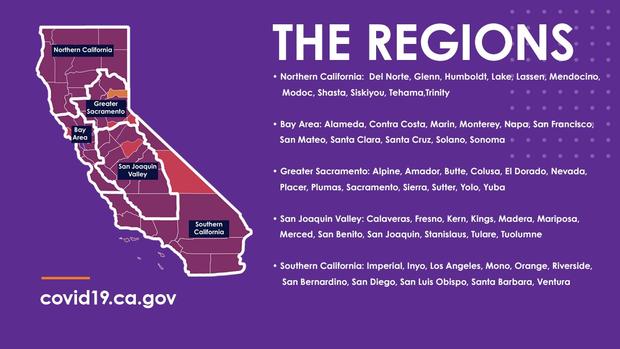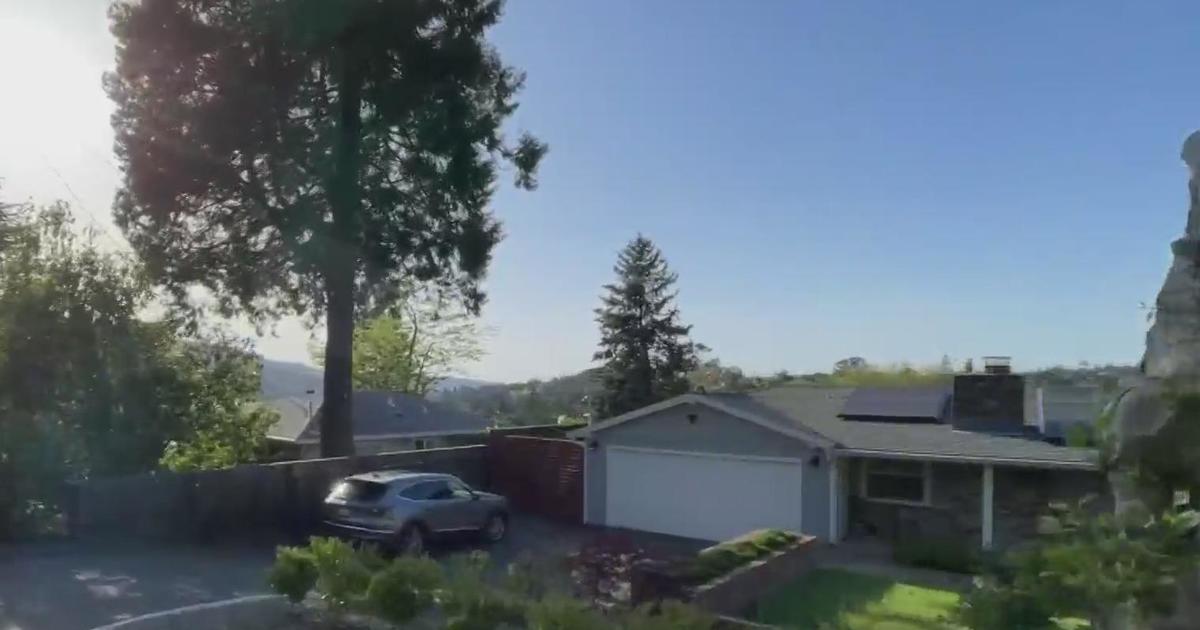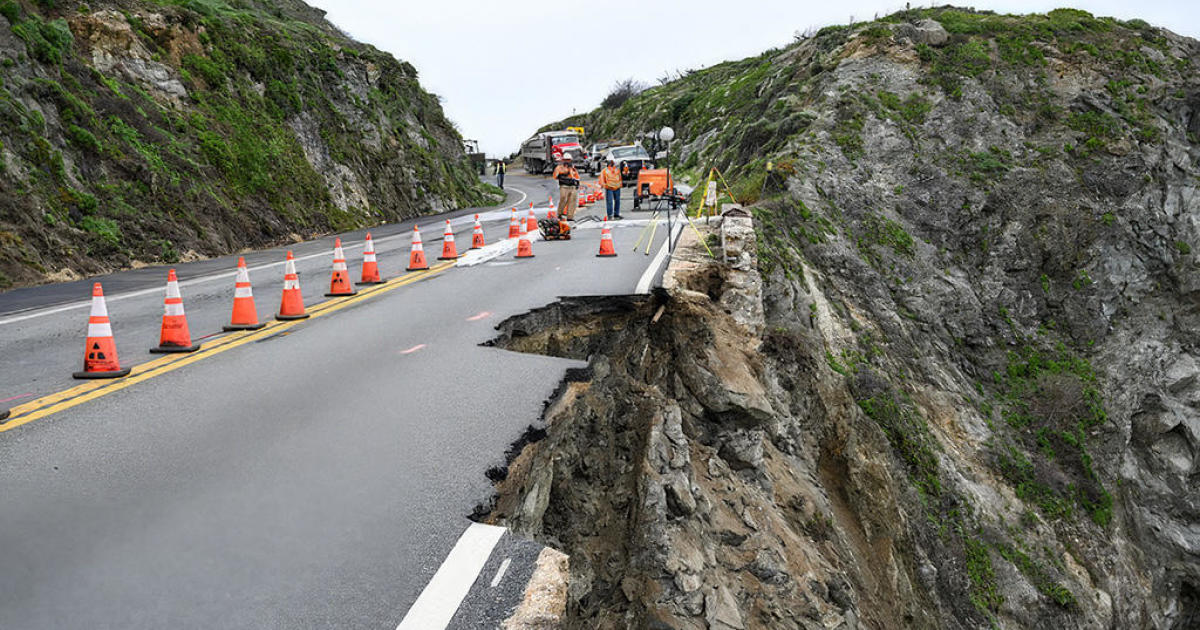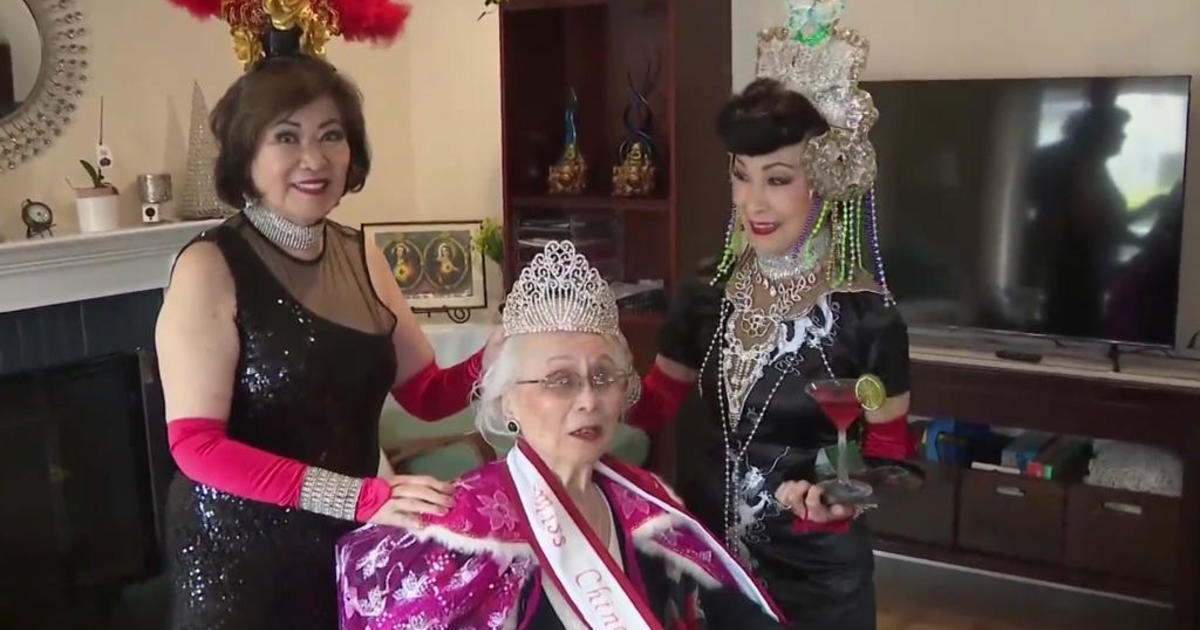COVID Restrictions: Newsom Announces Regional Stay-At-Home Order For Areas With Low ICU Capacity
CBS San Francisco Staff Report
SACRAMENTO (CBS SF) -- On the heels of a record day of new COVID cases, Gov. Gavin Newsom Thursday announced a new regional stay-at-home order tied to the ICU rates in a given region that will require many businesses to shut down.
Previously, the state has set restrictions based on county COVID case rates and hospitalizations. Alameda, San Francisco, Santa Clara, Contra Costa, San Mateo, Napa, Sonoma and Solano counties are all currently in the Purple Tier while Marin remained in the Red Tier as of Wednesday.
The new restrictions will be based on ICU capacity and tied to hospital regions. If a region falls below 15 percent available ICU capacity, it will get tougher restrictions with a three-week stay-at-home order.
According to Newsom, after the minimum three weeks, the order could be lifted if a region's projected ICU capacity meets or exceeds 15 percent. The region's projected ICU capacity would be reassessed weekly if it has not met that threshold after the third week.
The current ICU capacity projections for the different hospital regions in the state anticipate much of California will fall below the 15 percent ICU capacity within the next week, impacting greater Sacramento, Northern California, the San Joaquin Valley and Southern California by early December.
The Bay Area, which has fared better in terms of case numbers despite most of the region being in the purple tier, is projected to fall below the 15 percent ICU capacity threshold by mid-to-late December.
The governor said that state health officials had long discussions with with economic and business advisors to arrive at the latest framework for the stay-at-home order.
"Our experts and advisors are ample," he said. "We've been reaching out across the spectrum for a number of days now for valuable insight and valuable consideration that we put into play."
Newsom also outlined what businesses would be required to close for regions under the three-week stay-at-home orders.
"When the region is placed in the stay-at-home category, the bars, wineries, personal services, hair salons and the like will be temporarily closed for that three-week period," said Newsom.
Indoor and outdoor playgrounds, museums, zoos, and aquariums, movie theaters and family entertainment centers will also be required to close under the new restrictions.
Newsom said that the sectors that will remain open when a region is placed under the regional stay-at-home order include the following:
- Schools that have received a waiver
- Critical infrastructure
- Retail (20 percent capacity to reduce exposure)
- Restaurants (take-out and delivery)
- Places of worship will only be allowed to hold outdoor services
The governor acknowledged the difficulties that businesses, particularly restaurants retail, were enduring with the pandemic restrictions and would face again with the new order.
"As a restauranteur myself who quite literally started out of college, started a little retail business and a restaurant, I deeply empathize," Newsom said.
Newsom additionally announced that the state would temporarily restrict all non-essential travel statewide.
Newsom also noted the importance of staying active and maintaining connections during the stay-at-home order. He encouraged residents to stay connected with friends and family virtually.
He also stressed the importance of exercise and getting outdoors.
"Here is what we want to emphasize. None of us are naïve, I am certainly not, of the mental stress that all of us are under. Not just the financial distress that many are under, and more still with this stay at home order. But we want to encourage activity. Activity, again, that is focused, not indoors, not in congregant facilities, not where there is a tremendous amount of mixing, but outdoors," said Newsom. "We encourage you to take your dog out for a walk, we want you to exercise and go for a run with a partner in your household. Go sledding, these outdoor activities in the winter, a walk on the beach our out in our state parks, or the local parks, as appropriate."
Newsom reiterating that the restrictions are temporary, especially with the availability of a COVID vaccine coming in the next few months.
"This is not a permanent state. This is what many had projected, we had predicted, the final surge in this pandemic. There is light at the end of the tunnel. We are a few months away from truly seeing real progress with the vaccine: real distribution, real accessibility, real availability," said Newsom. "We do not anticipate having to do this once again, but we really all need to step up. We need to meet this moment head on and we need to do everything we can to stem the tide, to bend the curve and to give us the time necessary by bending that curve, to get those vaccines in the hands of all Californians."
California reported more than 20,000 new coronavirus cases on Wednesday, shattering the state's previous one-day record. A record 8,500 people are in the hospital, including more than 2,000 in the intensive care unit, leaving the state with fewer than 2,000 available intensive care unit beds.
Newsom said that regional health officials were working to prepare surge facilities across the state that would provide more available beds for COVID patients as case numbers continue to rise and ICU capacity shrinks.
"As we move to the stay at home, as we see the significant increase in ICUs and hospitalizations and deaths in the state of California, we are moving from 'warm' status to more active status," Newsom explained.
Newsom reminded business owners that the state is continuing to offer relief in the form of sales tax deferrals and low-interest loans in addition to financial support for workers.
"We put together a pretty comprehensive package. I dare say few states in the country did more in terms of sick leave, in terms of workers compensation, in terms of access to health coverage and expansion," said Newsom. "It is critical that people take advantage -- these programs are only as good as they are available and people are knowledgeable about them. So these supports for workers have been advanced, they are the law, and we encourage people to take advantage of them."
The governor also touched on the state's plans for vaccines and warned influential people thinking about getting early access to a COVID vaccination.
"We will be very aggressive in making sure that those with means, those with influence, are not crowding out those that are most deserving of the vaccines," Newsom said. "Those that think they can get ahead of the line, and those that think because they have resources or they have relationships that allow them to do it, we will also be monitoring that very, very closely."
Newsom additionally mentioned his plans for his homeless initiative Project Roomkey, saying that he planned to continue its implementation despite the pushback the program has received from some regional officials and residents.
"We're working aggressively with the new administration, the Biden administration, to get more clarity so that counties feel more comfortable extending the Roomkey model and feeling confident that it will extend beyond the calendar year," Newsom said.
The governor acknowledged that this latest and hopefully last surge might be the hardest challenge the state has faced so far in the pandemic.
"We need to take seriously this moment, this is the most challenging moment since the beginning of this pandemic. This is the time, if there was ever any doubt, to put aside your doubt, to put aside your skepticism, to put aside your cynicism, to put aside your ideology, to put aside any consideration except this: Lives are in the balance, lives will be lost, unless we do more than we've ever done," Newsom said. "We're being asked, we're being called to do everything in our power, to make tough decisions that are required of this moment. To get through the next number of weeks, to get through the next few months."
He added: "We will be resilient and we will recover as a state and all of us will be rewarded by knowing we saved lives of loved ones, we saved lives of strangers and we did our best to mitigate the spread of this virus."
Health officials across the state expect the surge to intensify over the next several weeks as those cases stream into the already overwhelmed state-wide hospital system.
Santa Clara County over the weekend announced a 14-day quarantine for those who travel to the county from more than 150 miles away. There is also a 10 p.m. to 5 a.m. curfew in every Bay Area county except in Marin.
Los Angeles County, the nation's most populous with 10 million residents, also has imposed tighter stay-at-home restrictions and a three-week ban on in-person restaurant dining because of what county health director Barbara Ferrer called "terrifying increases in numbers."
On Wednesday night, Los Angeles Mayor Eric Garcetti issued a city order that spoke in apocalyptic tones as it ordered people to remain in their homes.
L.A. "is now close to a devastating tipping point" that could overwhelm the hospital system, "in turn risking needless suffering and death," the mayor's order said.




